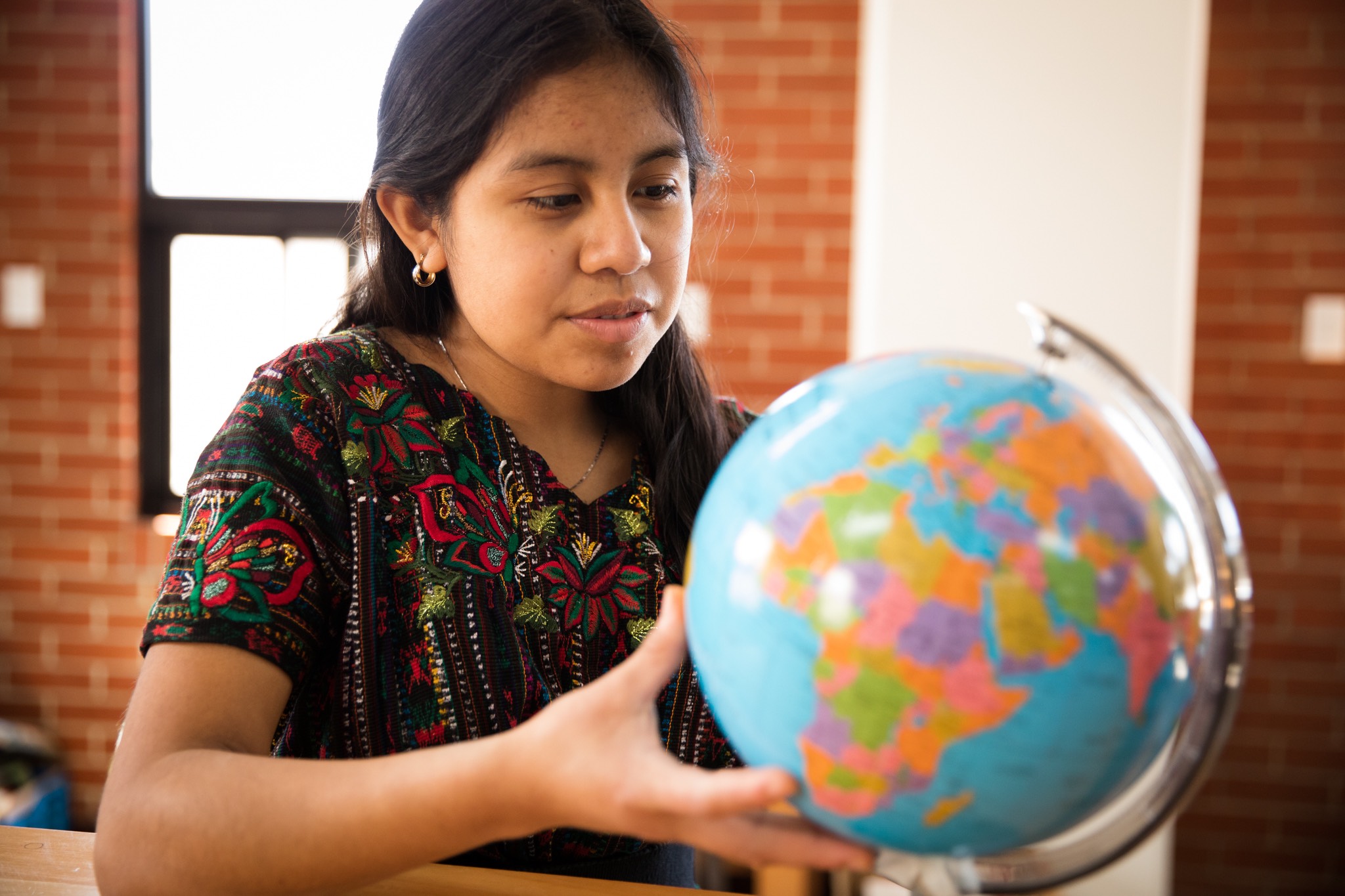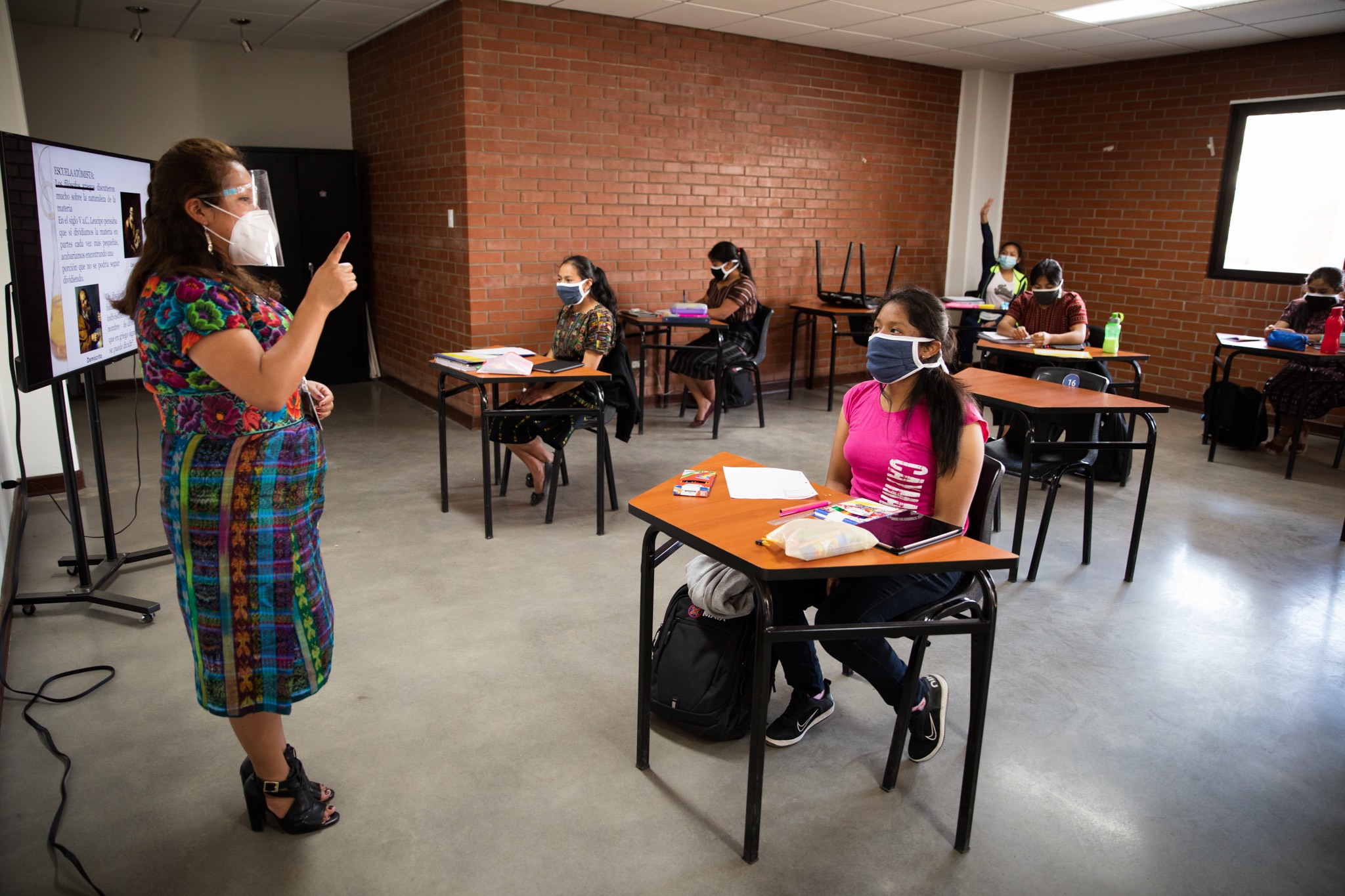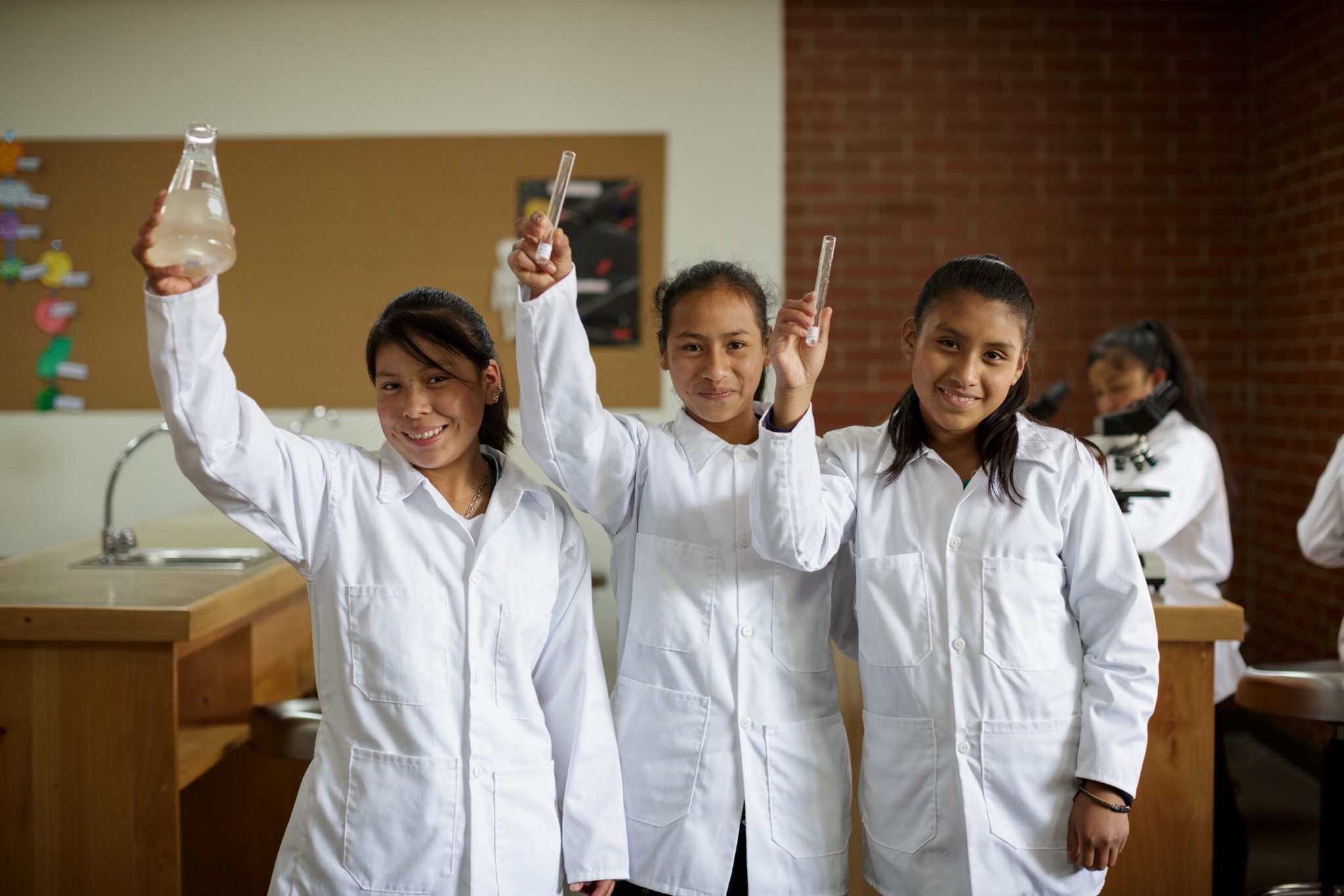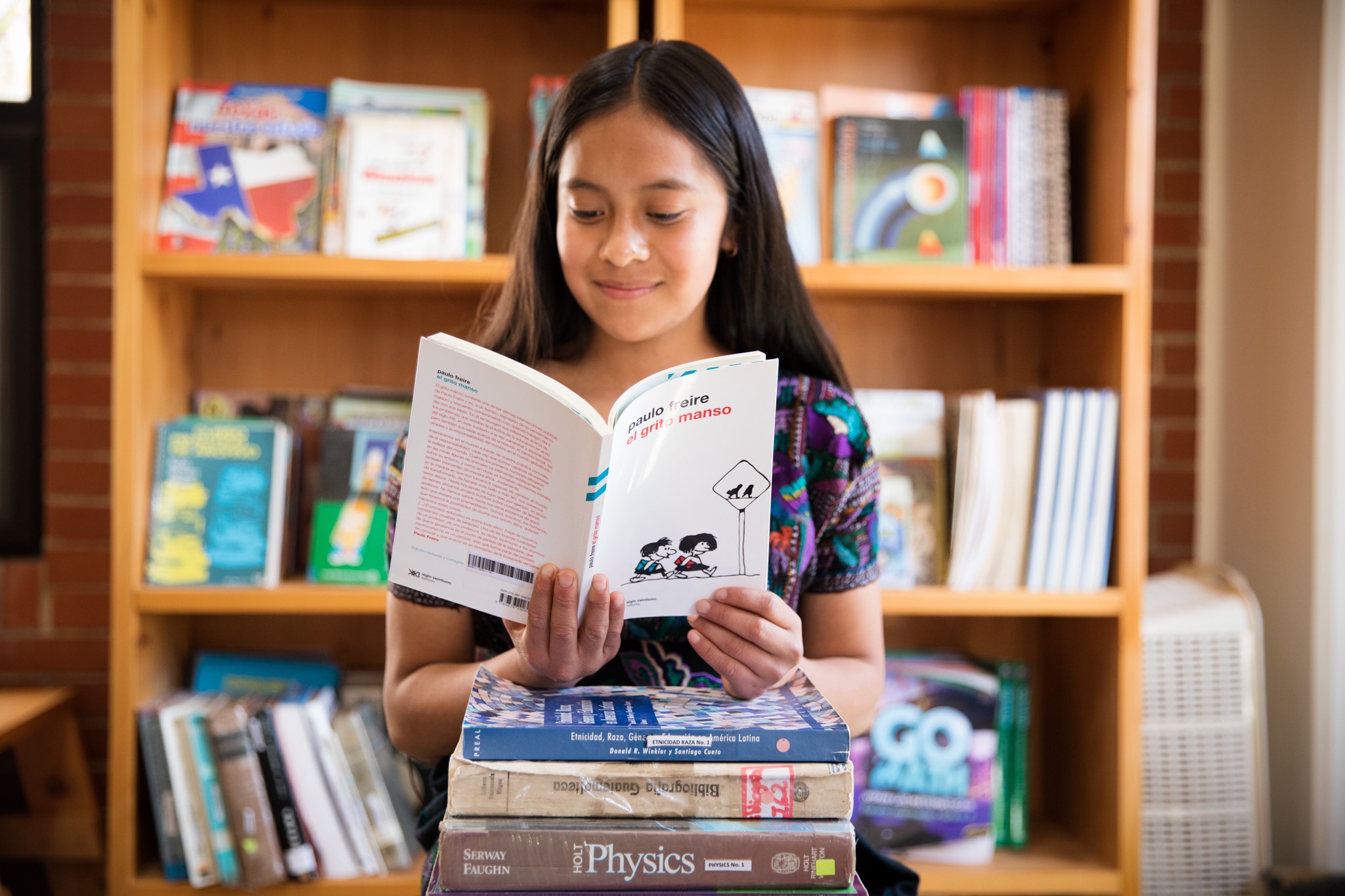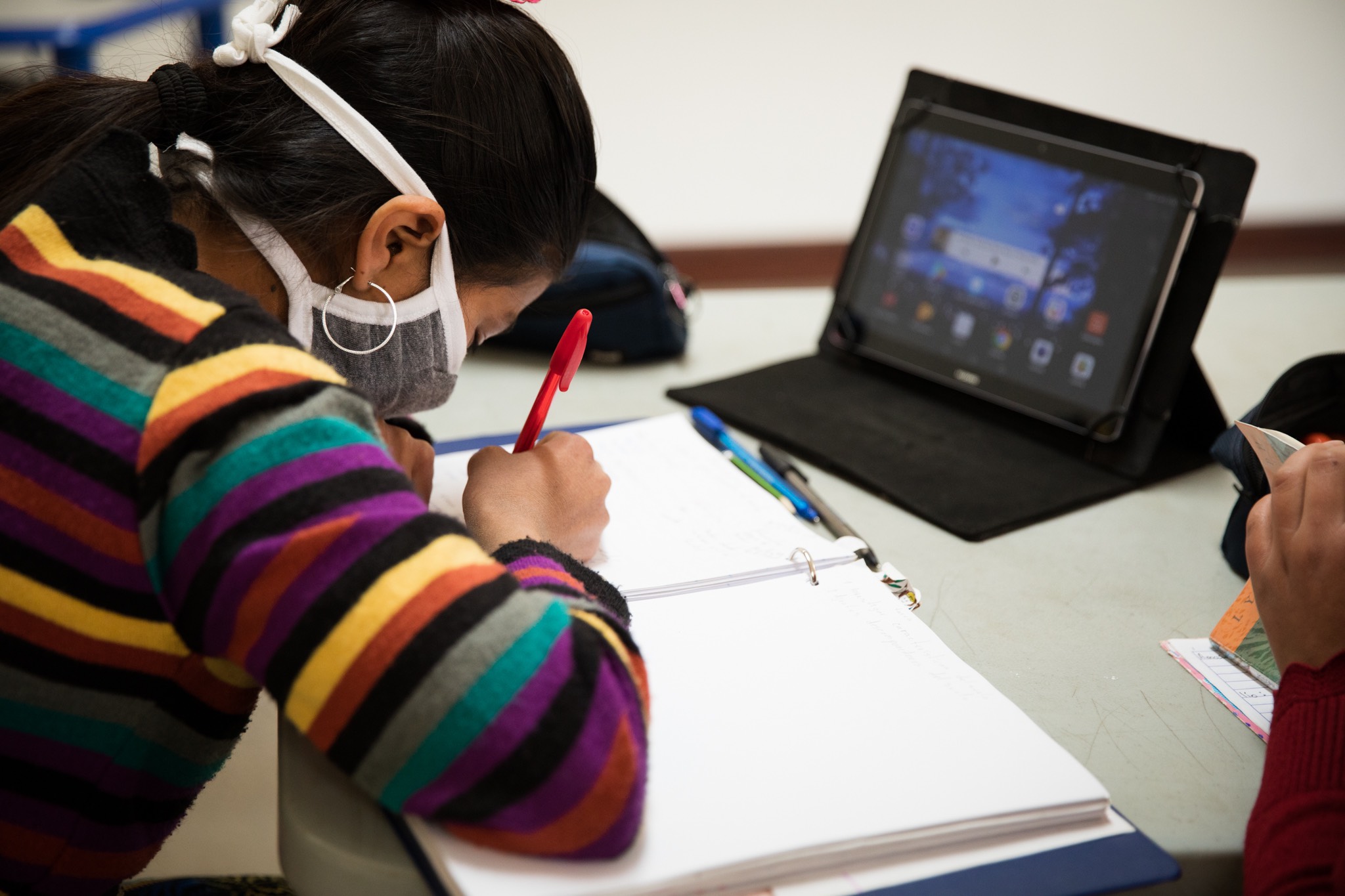Helping Indigenous Women in Guatemala Take on the World
In Guatemala, fewer than 20 percent of indigenous girls graduate from secondary school and fewer than two percent continue to university. Limited educational opportunities for young women are compounded by inadequate family planning resources and intergenerational poverty, which has a ripple effect on their future. The vast majority of Indigenous Maya women in Guatemala are not empowered to pursue paths, dreams, or careers that reach beyond the boundaries of their rural communities.
“For too long, [indigenous girls] have been perceived as the problem, while all evidence shows they actually are the solution. MAIA believes that the best way to change the world is through girls’ education,” says MAIA’s US Country Director Jenny Dale. “As an organization, we work to connect the talent of indigenous adolescents from rural Guatemala with 21st century opportunities. Maya women have been excluded from participating in Guatemala’s political, social, or economic spheres for centuries.”
MAIA Co-Founders Theodore Ning, Connie Ning, and Mimi Schlumberger set out to change that dynamic. In 2008, they launched the organization (originally called Estrella del Mar, or Starfish) with one question in mind: What would happen if young women could go as far as their talent could take them?
They began with a mentorship and scholarship program centered on creating Girl Pioneers, named because they would be the first in their families to complete secondary school. In addition to offering financial support to families, the mentorship program, known now as the Starfish Legacy Program, included extensive extracurricular weekend involvement. Mentorship groups of twelve to fifteen peers engage on topics such as financial literacy, reproductive health, civic engagement, and life planning over a six-year period. Graduates of the program are challenged to complete fifteen years of schooling, five times the amount of the average indigenous adult in Guatemala, according to MAIA’s website. To date, 244 young women have graduated from the Starfish Legacy Mentorship Program.
The success of the Starfish Legacy Program does not solve all of the educational problems for indigenous girls. Many schools are under-resourced and cannot adequately prepare students to enter the workforce or continue their studies. According to The Guatemala Ministry of Education, in Sololá, Guatemala, just eight percent of high school graduates are considered proficient in math.
To directly address this issue, in 2017 the MAIA team took their work toward educational equity a step further. They founded the Impact School, a secondary school that serves first generation, rural, indigenous girls. The Impact School combines mentorship, rigorous academics, and cultural celebration with home visits and familial interaction to better the lives of its students.
“We recognize that Maya women have been excluded from participating in Guatemala’s political, social, and economic spheres for centuries,” says Dale. To create a different reality, one where women’s voices are integral to society, students need to see themselves in their educators, mentors, and leaders. “The MAIA mentorship model works because mentors are mirrors of their mentees—they’re from the same, or a similar, community and have had a comparable trajectory,” Dale says.
MAIA’s 65 full-time employees (who are 87% indigenous Maya and 87% female) work from an “abundance mindset,” knowing that by building and sustaining partnerships and collaborations, they can strengthen their ability to enrich their students’ experiences and help them reach their maximum potential. Their website and social media are central tools that the organization uses to connect with other allies to make education the norm, not the exception.
The COVID-19 global pandemic raised the stakes for girls in the communities MAIA serves even more. They have been at greater risk of dropping out of school, getting married at a young age, experiencing early pregnancy, and experiencing violence.
“It is now, more than ever, that we need to prioritize girls’ education,” Dale stresses. “Girl Pioneers are illuminating the path for other young girls who will see their potential reflected in them.”
Seventeen-year-old Marisol is a Girl Pioneer who is changing the present and future. At the height of the global pandemic, she launched an organic garden program to help families grow their own food and combat food insecurity and malnutrition in her community. Marisol captures MAIA’s effect on her life so beautifully: “Being a Girl Pioneer is a great responsibility and commitment,” she says. “It is an opportunity to sow my own seeds and reap my own fruits.”
During COVID-19 school closures, three other Girl Pioneers, María Florinda, Elvira, and Yessica, organized book donations and constructed community library boxes in their local districts of Xolbé, Chuimanzana, and Chuarixche. The goal? To ensure all kids had access to books during the pandemic. The project was showcased by Malala Yousafzai, the Pakistani activist and Nobel laureate, making the girls feel extra proud of their work. And that pride only inspires more action.
“Every area of development—from addressing climate change to world economic prosperity—is dramatically improved when girls participate fully in society,” says Dale.
.ORG is proud to help MAIA raise awareness of their efforts to improve the lives of girls in Guatemala. To learn more about and support MAIA’s work, please visit www.maiaimpact.org.

